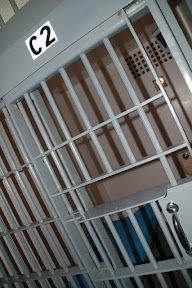Elmore Leonard was indeed a great writer. That doesn’t mean his 10 Rules For Good Writing should be followed. Some of them make sense, but, “Never open a book with weather?”
What if your book is set in the Amazon, might your characters take note of a little humidity? What if your lead guy is a leatherneck working on an oil rig in Prudhoe Bay, Alaska? Can he say, "Gee, it's nippy." How about Monsoon season in Bangkok? "Before I left the house I had to choose between an umbrella and diving gear." I find the cliché of “setting as
character” a little annoying since it’s not.
Setting is the setting. But there
is some truth that a special setting, like Raymond Chandler’s LA, Parker’s
Boston or Grafton’s Santa Terresa, California, does have a personality that
infects the story, like a member of a series ensemble, familiar and prominent
in the narrative.
You English majors will recognize the term “pathetic fallacy”, a conceit used by Homer, Shakespeare and 18th century Romantics where the mood and behaviors of the characters both reflect and influence natural forces. In modern literature, this can be pretty silly, unless it’s deftly metaphorical. Lee Child’s Jack Reacher is often found trudging through a howling blizzard somewhere in the Upper Great Plains (even in Chapter 1), establishing the promise of savage and frozen-hearted villainy about to ensue.
(My wife played on a softball team in graduate school composed mostly of PhD candidates who called themselves The Pathetic Fallacies. Still my favorite use of the term.)
I’ve written two other books that featured
giant storms, which might betray more of a meteorological than literary obsession. In both, hurricanes capped off the action, a deployment
of weather as a plot device Leonard is silent on. In Black Swan, I was credited with a clever
use of the “locked-room mystery” motif (trope?), though my actual intent was to crib
somewhat blatantly from the plot of Key Largo.
The concept of being trapped in a claustrophobic space as an uncontrollable
fury smashes into the building is pretty compelling. Especially when you’re trapped there with a
bunch of murderous, drunken bad guys.
Weather in this case really deserves to be front and center, open to any
metaphorical, theological, existential interpretation you wish to infer.
My other book featuring a wild
tempest took place on the Jersey Shore, where I actually rode out a hurricane. I was a lifeguard, and since the town was paying
us to protect lives, we had to stay on while the protected fled to the
mainland. After clearing out a few knuckleheads
trying to surf in the wrathful Atlantic Ocean, we retreated to our bungalow for
the night, when the worst of the storm hit.
So, I too was confined to tight
quarters that were being bashed and jostled by the wind with a bunch of people
who were not murderous, but decidedly drunk.
This
was an experience that I had to use at some point. In Homer, to say nothing of the Old Testament,
these sorts of events are an act of divine cleansing of the hubris and
corruption inherent in ever-fallible humanity.
I didn’t want to go that far, though as we all know, few
things impose a greater sense of humility on real people and fictional characters alike than a rip-roaring natural disaster.
After that storm in New Jersey, with only the Beach Patrol and other first responders wandering around looking at the damage, the world was strangely quiet, even serene. For some reason, it evoked the feelings I had reading the last paragraph of Joyce’s The Dead, which I believe is the finest bit of literary language ever composed in English. So I adapted that for the ending of my lifeguard book, Elysiana.
I waited for charges of appropriation
but never heard a word.















